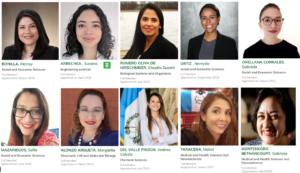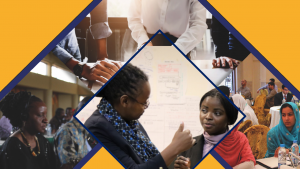Discussing science over a steaming cup of coffee
Gilchriste Ndongwe is the Project Manager of the Knowledge and Library Unit at Zimbabwe Economic Policy Analysis Research Unit (ZEPARU) and a member of the Research Council of Zimbabwe.
Most people in Zimbabwe consider a café an ideal place to catch up with friends and relatives. Historically, “café society” has offered other forms of social interaction, like live music, poetry readings and even stand-up comedy.
Few people would imagine discussing science over a steaming cup of coffee with a live band, but in recent years the café has become the chic venue for weighty issues. Around the world a growing trend is to share a jolt of java with managed discussions from invited scientists. In this friendly, informal and interactive setting, they unravel their mysterious world with the public and colleagues alike. This approach to science communication is known as the Science Café. The first of these in Zimbabwe were recently organised with support from INASP.
The initial two sets of cafes were held at the Ambassador Hotel in the central business district of Harare. The first discussed under what economic conditions Zimbabwe should revert back to using the Zimbabwean Dollar. The key speakers included two economists — a senior with the Reserve Bank of Zimbabwe and a representative from the Zimbabwe Economic Policy Research Analysis Unit (ZEPARU).
The second science café discussed the government policy on GMO’s in light of Poverty Alleviation versus Health Implications. This one featured some key national scientists such as Prof.Chetsanga (Zimche) and Mr Justin Manyau from the Ministry of Science and Technology.
A Science Café focuses on being more of a discussion of issues than a science lecture and the format is that of a group conversation rather than a conference. As with the two sessions in Zimbabwe, it covers economic issues as well as topical ‘science’ issues and provides a flexible format and a great tool for getting the public to engage with research.





This sounds like a great way to engage people in scientific issues – it sounds like one of its main advantages is that it’s a non-traditional and un-intimidating environment, so people who don’t neccessarily deal with science everyday will feel like they can get involved. Well done on the great work!
I’m curious though about how you get people involved in the first place? Is it advertised as a public event? And do you aim it more at the academic community or the public?
Hello Kim,
Thanks for the comments. From my experience as an observer at the Zimbabwean Cafe it did seem like a mixed audience – some academics, some media, some policy makers and some members of the informed public. I don’t know exactly how the Zimbabwean cafe was advertised but I do know it was shared on social networking sites including local social networks. In other cafes I have attended, the media has played a great role in spreading the word. This usually happens after a journalist has been to a cafe – s/he may write a piece about it but also talk about upcoming cafes too. The organisers also keep previous attendees updated on upcoming events and they in turn share with their contacts.